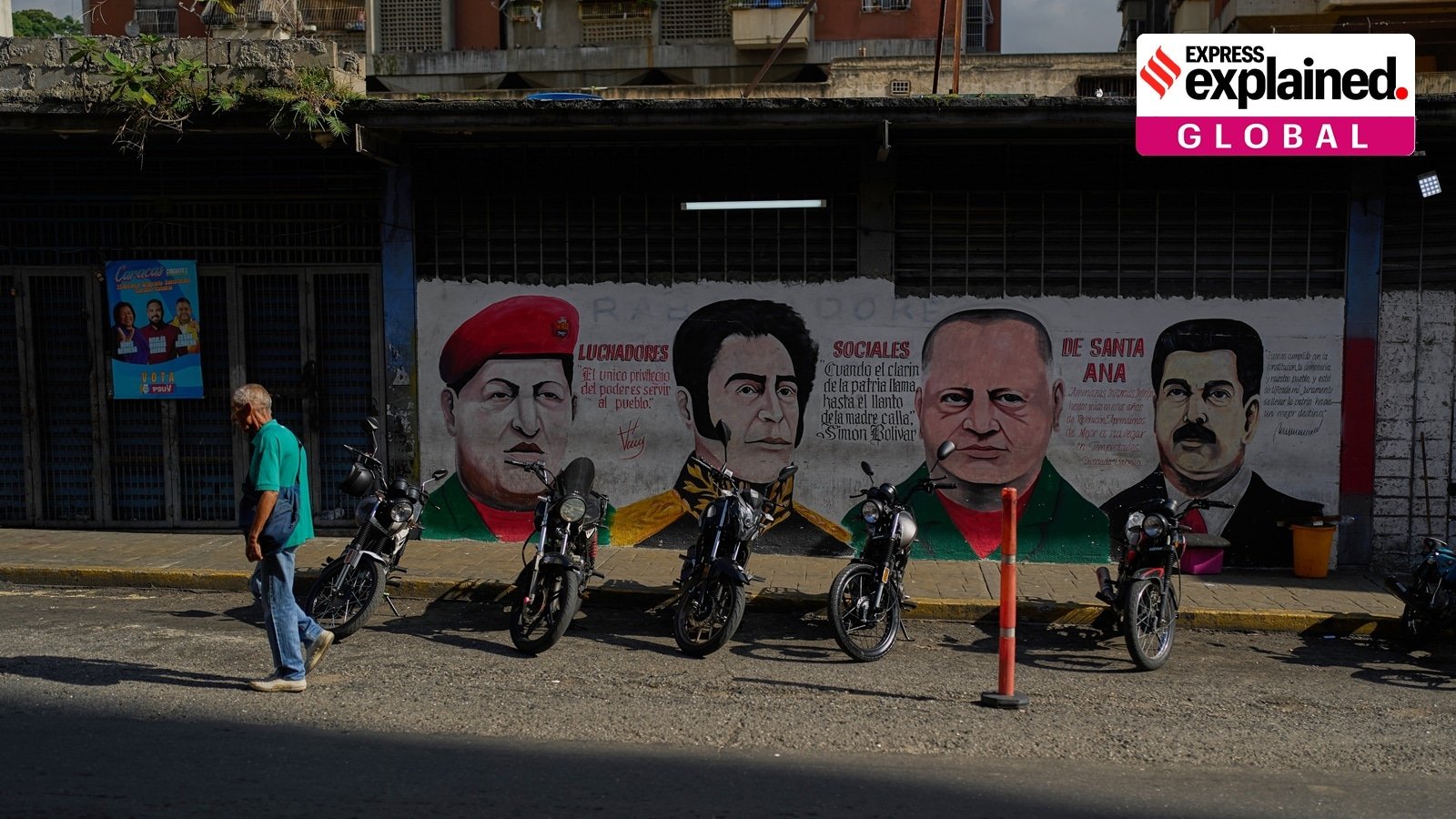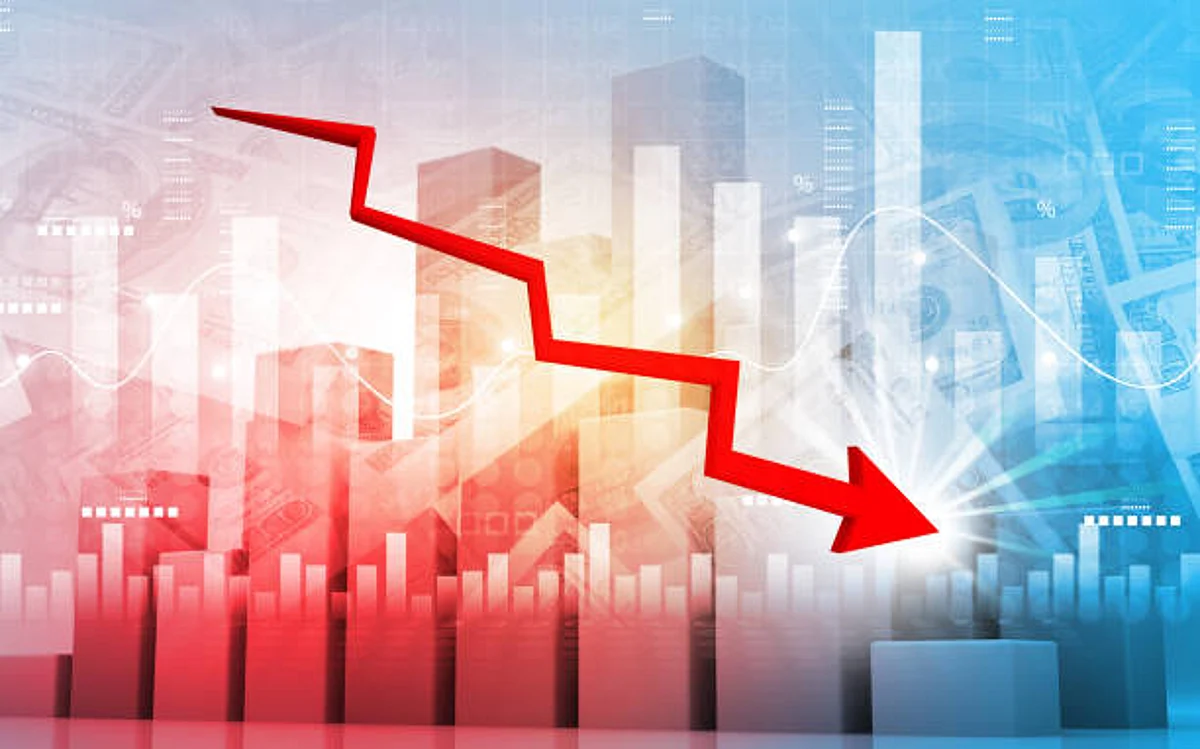The US is building up military presence in the Caribbean Sea, after striking Venezuelan boats it claimed were carrying drugs into the US. US President Donald Trump has authorised the Central Intelligence Agency (CIA) to conduct covert operations into the Latin American country, and his administration has offered $50 million for information leading to the arrest of the Venezuelan President, Nicolas Maduro.
While Trump’s stated aim is controlling the flow of drugs and illegal immigrants into the US, his country has a long history of involvement in regime changes in Latin America. R Viswanathan, who has served as India’s ambassador to Venezuela, Argentina, Uruguay and Paraguay, explains the Trump-Maduro dispute and the larger context around it. He spoke to Yashee.
The US military build-up in the Caribbean is much heavier than what’s needed to tackle drug boats. Is Venezuela a major source of drugs going to the US? What exactly is Trump doing?
Venezuela is not known to be a major drug supplier to the US. The Trump administration would like a regime change in Venezuela, and the ‘war on drugs’ is pretext that the US has used in this region earlier too. In 1989, it was Panama, when the US unseated President Manuel Noriega. In 2022, it was the leader of Honduras, Juan Hernández.
Let’s look at the drug issue first. More than a supply side issue, it is a demand and consumer-driven business within the US. As long as the huge demand exists and the Americans are ready to pay top dollars, there will always be someone willing to supply. Even the American pharma company Purdue Labs produced and marketed Oxycontin by downplaying its addictive properties, which caused addiction and thousands of deaths.
Second, if we look at Venezuela, it is true that Maduro is unpopular and the election that brought him to power was rigged. Venezuela’s economy has collapsed and there are frequent allegations of repression of critical voices.
But to a degree, it is the US that is responsible for the situation. US sanctions have crippled Venezuela’s economy, which depends heavily on oil exports. And the fate of other unseated Latin American leaders have made Maduro determined to stick to power. Noriega was in an American jail for 17 years. Hernandez and his brother are also in jail. If Maduro were to lose power, he would be extradited to the US and imprisoned there. He would rather do anything to stay in power to avoid this fate. And it won’t be him alone. A whole host of top generals, political leaders, cabinet ministers, members of the electoral commission, intelligence agencies, stand to lose from a regime change.
Story continues below this ad
Maduro is not a single-man dictatorship. It is not like Noriega, or Rafael Trujillo of the Dominican Republic, or even Maduro’s predecessor, Hugo Chavez. Chavez ruled through personal charisma. Maduro is not charismatic, he doesn’t have grassroot support or ideological standing, he is no firebrand. He is backed by a whole system, and that system will fight really hard to prevent a pro-American opposition from coming to power.
The victims here are the people of Venezuela, who are denied a free and fair election and the right to choose their leader.
Opposition leaders like Maria Corina Machado, who won the Nobel Peace Prize, should learn from other Latin American countries, such Brazil, Argentina and Uruguay, which came out of military dictatorships through internal struggles. Banking on US intervention to dethrone Maduro is not the best course of action.
What is the reason behind ramping up the pressure on Venezuela right now?
Story continues below this ad
Venezuela has the largest oil reserves in the world. If Venezuela starts pumping up oil, it will be in direct competition with the US, which has become one of the biggest exporters of oil. This is the reason the US doesn’t want Venezuela, Iran and Russia to export their oil.
There is a dictatorship in Nicaragua, which is worse than the Venezuelan dictatorship. But the Americans are not up in arms against them because there is nothing of interest to them.
When the US brought about a short-lived coup in Venezuela in 2002, I was in Caracas as India’s ambassador. That coup was bungled up by its pro-American instigators and Chavez came back to power.
However, right now, one very important factor driving the focus on Venezuela is US Secretary of State Marco Rubio. Rubio’s parents were of Cuban origin; his family fled the Communist regime there. He would really like Maduro, a Cuban ally, gone. This is also one of the reasons that diplomatic outreaches to improve ties have not worked.
Story continues below this ad
But the US efforts have been complicated by the fact that they don’t know what is happening inside the Chavista regime. Because they don’t recognise Maduro, they don’t have an embassy there. If they had a proper embassy, they could have worked at gaining local support and dividing the Chavista regime from inside.
The US has a long history of interventions in Latin America. Why is that?
Economic interests have powered much of it. Latin America is rich in natural resources, which the US wants its firms to have full access to. During the Cold War, there was the imperative to stop the spread of Communism.
In the 1950s, the CIA helped the coup against Guatemala’s president, Jacobo Árbenz Guzmán. In 1961 of course, there was the Bay of Pigs invasion, a failed attempt to unseat Cuba’s Fidel Castro. In the 1970s, the CIA meddled in Chile to remove Salvador Allende from power.
Then, the US has launched serial wars — war on communism, war on drugs, war on terror, war on corruption, and now the tariff war — which have been used for regime change, destabilisation and promotion of business interests.
Story continues below this ad
Apart from this, the US had trained and worked actively with Latin American prosecutors to bring down Latin American presidents and large corporations such as Odebrecht and Petrobras.
What are the options before Maduro now?
Not many. Militarily, none of America’s opponents, like Russia or China, are likely to come to his aid. At the most, they might veto some resolutions against him in the UN.
Within Latin America, Maduro’s best champion could have been Brazil’s President Luiz Inácio Lula da Silva with his Lula Doctrine: Latin America will not allow external forces to remove elected presidents of their countries. Lula could have rallied other Leftist leaders to provide solidarity to Maduro and basically make more of a noise against the US. But Maduro has antagonised Lula by calling him names when the Brazilian leader questioned the elections that brought him to power.
However, while Maduro may not have a lot of friends, he is not exactly a sitting target. He has been trained by Cuba, which has survived many American interventions, assassination attempts, conspiracies, and regime change operations. So now, Maduro is hardened, and will fight a long — and if necessary, bloody — battle for survival.




